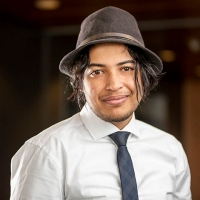Keroles Riad is a doctoral candidate in the Individualized program (INDI). Keroles holds a BEng in Mechanical engineering and an MSc through the INDI program. Keroles is a recipient of the Quebec Lieutenant Governor Youth Medal, and is the driving force behind Concordia’s successful Waste Not, Want Not student-led composting program.
Blog post
It is your turn to make Concordia better than you find it today
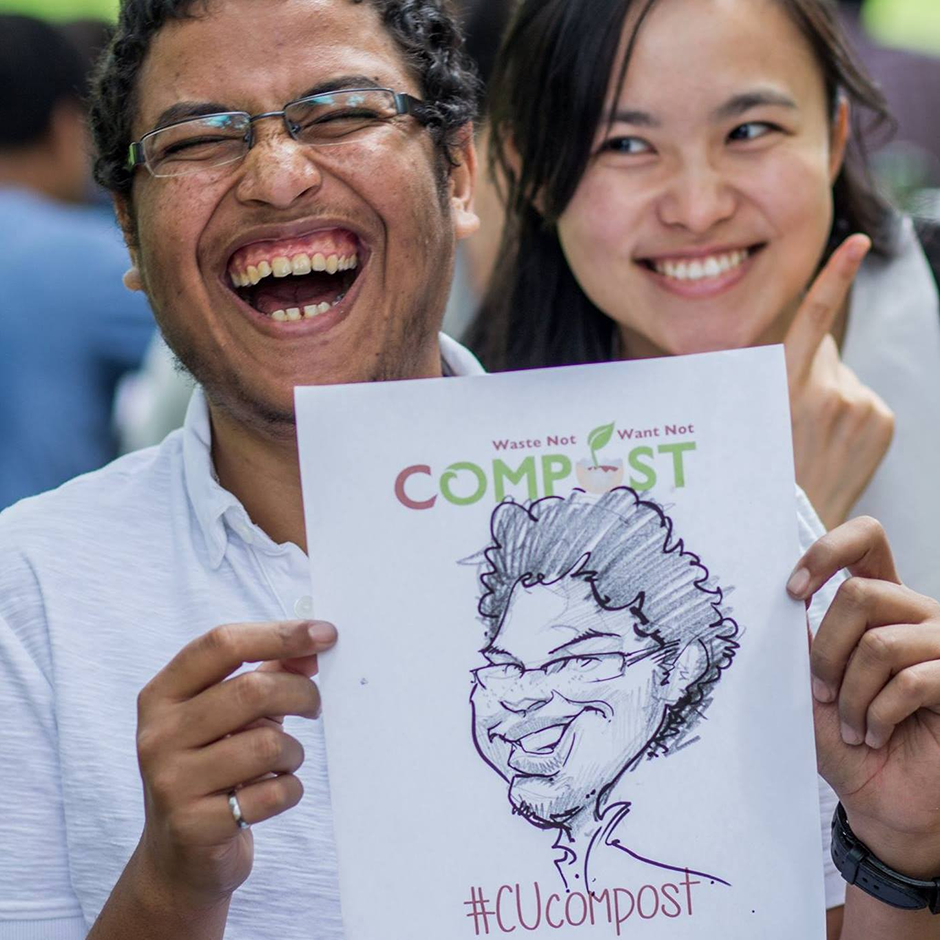
I am nearing my last year in my PhD (crossing fingers), and it is slowly dawning on me that I will soon leave this place I call home. So, I have been reflecting on my university journey. Perhaps there is no better time than these strange days to bring to focus the importance of campus life to our learning and growth; to our sense of community and belonging. In this blog, I hope to convince you that our university years are not a rehearsal for the curtain opening that is graduation. A university experience is more than credentials. The Concordia I have experienced has been a place where if you work hard, you can make a positive difference right now, right here and beyond.
For example, as of last year, all of Concordia’s umbrella student associations have adopted sustainability policies, committing to institutional memory the great work we have been doing together. These policies include commitments to waste reduction and go beyond environmental sustainability. I had a front row seat to how these achievements unfolded through my work with the Waste Not, Want Not initiative and by regularly presenting to student associations councils to make the case for sustainability policies.
To be clear, institutionalizing sustainability does not mean having a Concordia department overtake student sustainability projects. Instead, institutionalizing sustainability means that we integrate the sustainability mindset and principles in everything everyone does at Concordia. A second example: some five years ago, I sat on the Concordia’s Council on Student Life (CCSL) and worked with the Concordia Student Union (CSU) and the Dean of Students, Andrew Woodall, to change the composition of council to ensure that sustainability is consistently considered. The CSU agreed to give up one of its seats to a student representative from Sustainable Concordia. The dean of students has agreed to add Concordia’s sustainability coordinator as a non-voting staff member on CCSL.
With that, I would like to share some key threads from those experiences. I hope that they be of some guidance to you to affect positive change, and make Concordia a better place for us all and the broader community:
Leadership is hard; leaders are prepared.
Policy is hard, thankless, not-at-all-sexy work, even though I find it most fulfilling. The challenge is that discussions too often take place in abstraction and uncover the anxiety that naturally comes with change. Julia Levantian, former VP internal at the Engineering and Computer Science Association (ECA), was surprised that the brainstorming sessions she organized with council and subgroups “were a lot more controversial than [she] originally thought”. Nonetheless, she was happy of how the lively discussions “show how much people care”. In the end, the ECA reached consensus to adopt their sustainability policy that ensures that there is a compost bin in every space, and that no single-use plastic items are used in any event. Students are expected to bring their own reusable mugs to ECA’s weekly lizard lounges.
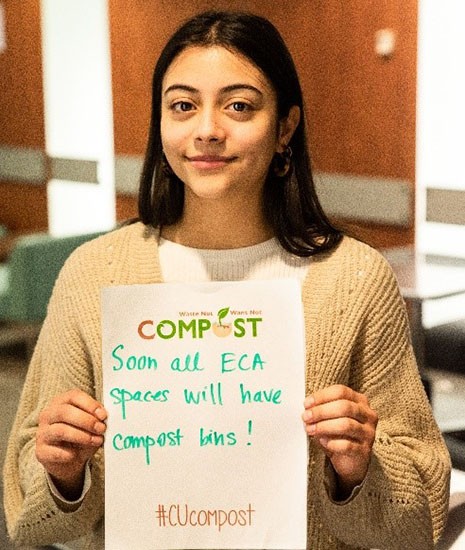 Julia Levantian, ECA 2019-20.
Julia Levantian, ECA 2019-20.
Eric Warner, former president of the John Molson Sustainable Enterprise Committee (JSEC) and a former project coordinator at Waste Not, Want Not, described his experience at the final vote as being in the hot seat for a grilling because everyone had a lot of questions. Nonetheless, he“felt well equipped to have the discussion because of all the research [he] has done in preparation”. At the end of a grilling meeting, the Commerce and Administration Students’ Association (CASA) adopted its sustainability policy. It requires all CASA subsidiary groups to set sustainability targets, and work with the sustainability advisory board to revise these plans and track progress. It also creates a CASA sustainability fund to empower business students to execute their sustainability ideas.
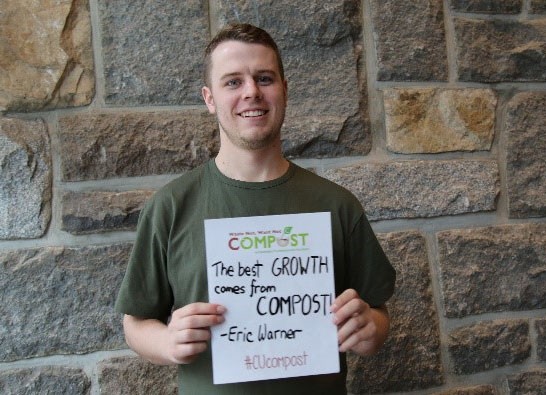 Eric Warner, JSEC & CASA 2018-19.
Eric Warner, JSEC & CASA 2018-19.
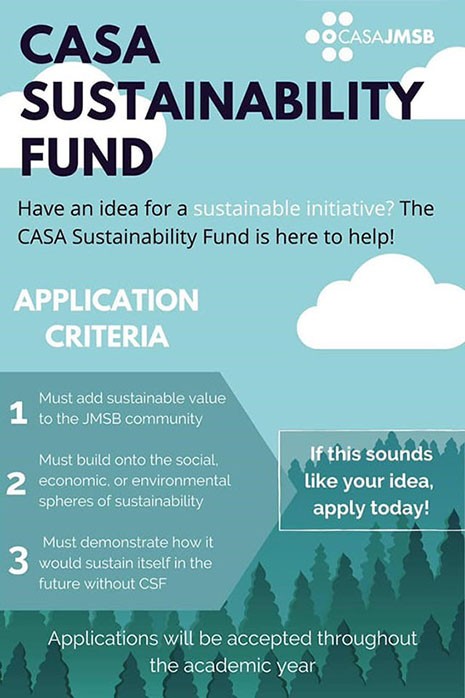
Leaders find the gap, and focus on what matters.
Both Eric and Julia felt that sustainability is not discussed enough in their respective faculty communities. Julia mentioned that “[engineering students] do not learn enough about the full product life cycle in curriculum”. When it comes to student life, Julia understood that “no one is going out of their way to waste more, but there is no conscious effort to reduce”. Eric similarly felt that sustainability conversations in the John Molson School of Business are often “peripheral” with the attitude of “if we can, we will do it differently”. Therefore, it was important in these situations to focus on getting subgroups to think about sustainability in their own contexts.
On the other hand, Katherine Parthimos, former outreach coordinator at the Fine Arts Student Alliance (FASA), felt that the culture among fine arts students is already “well aligned with social sustainability”, and that it is important to fortify that culture in their sustainability policy. Therefore, FASA’s policy includes requiring groups to live up to their responsibility towards their volunteers by ensuring that volunteers are recognized in Concordia’s Co-Curricular Record (CCR). The policy ties FASA’s project funding to compliance with this requirement. Katherine added,“I am hoping we get the knowledge of the Concordia co-curricular record more widespread through the fine art student body and have more volunteer positions be officially recognized”.
This is a continuation of an ongoing trend to better utilize the co-curricular record that I was privileged to have a front row seat for. In the past few years, the CCSL, Sustainability Action Fund (SAF), and the Graduate Student Association (GSA) adopted guidelines tying project funding to better use of the co-curricular record. The Concordia School of Graduate Studies now allows for co-curricular records to be provided as an optional document in graduate program applications. Financial aid also asks for co-curricular records as an optional document in its scholarships and bursaries with a community involvement component. I hope that all other funding bodies at Concordia including student associations draw inspiration from these steps to better recognize volunteerism via Concordia’s co-curricular record. I also hope you make the effort to document your volunteer work in your co-curricular record to inspire others around you to get engaged.
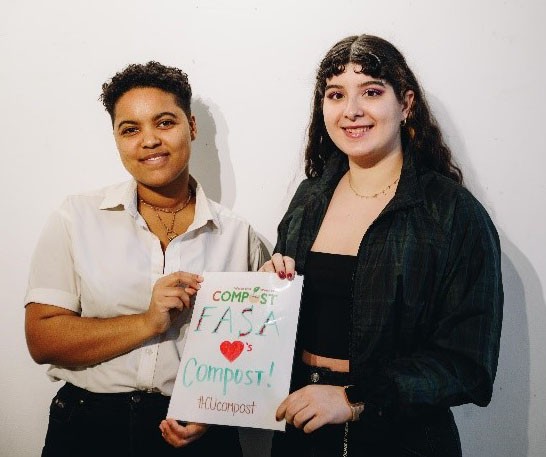 Sue Callender (Left) and Katherine Parthimos (Right) (FASA, 2019-20)
Sue Callender (Left) and Katherine Parthimos (Right) (FASA, 2019-20)
Leaders are patient, collaborative and effective.
Andrew Woodall, Concordia’s Dean of Students, highlighted that the CCSL composition change “was not a forced change. The students who did this were patient and worked with council members collaboratively to make sure it is sustainable. It was great leadership by the CSU to give up one of their seats”. In the end, “[the change] makes us more consistent with our values, and make better decisions”.
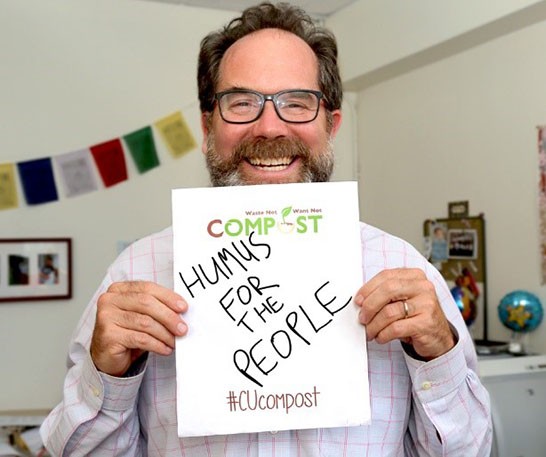 Andrew Woodall, Dean of Students.
Andrew Woodall, Dean of Students.
Leaders inspire and get inspired!
We stand on the shoulders of those who inspire us. Julia was inspired to write a sustainability policy by learning that the engineering student association in Sherbrooke University added a VP sustainability position. Katherine got her inspiration from learning about CASA’s sustainability that was adopted the year prior to her mandate at FASA. Andrew said that the new representative from Sustainable Concordia, Mark Underwood, and the former Concordia’s sustainability coordinator, Chantal Forgues, amended CCSL’s special project funding applications to include a sustainability question and criteria. CCSL distributes $130,000 to 150-200 student projects annually.
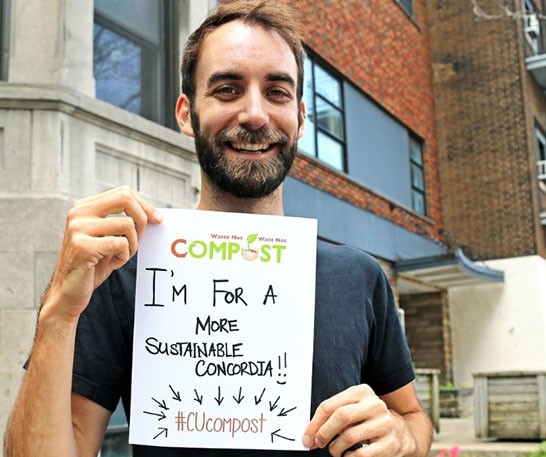 Mark Underwood (Sustainable Concordia representative on CCSL, 2016-17).
Mark Underwood (Sustainable Concordia representative on CCSL, 2016-17).
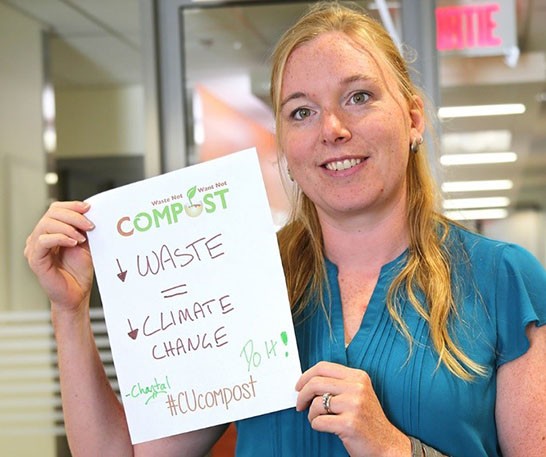 Chantal Forgus (Former Concordia Sustainability Coordinator).
Chantal Forgus (Former Concordia Sustainability Coordinator).
Agunik Mamikonyan, former VP external affairs and sustainability in the Arts and Science Federation of Associations (ASFA), started from the sustainability policy draft prepared by her predecessor in ASFA, Lana Galbraith. Agunik felt a sense of responsibility because “when someone is in a position of influence, they should try to use that to help the community improve, and be a good example for others”. ASFA’s sustainability policy includes adhering to Concordia’s sustainable event guide, mandatory consent training, and advocacy for more sustainability content in the curriculum of the faculty of arts and science.
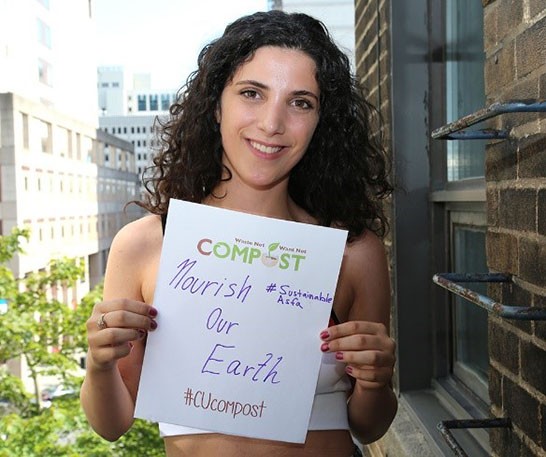 Agunik Mamikonyan (ASFA, 2016-17)
Agunik Mamikonyan (ASFA, 2016-17)
Leaders appreciate nuance, not get paralyzed by it.
We all had to take baby steps before striding forward. Despite a common recognition that none of the policy points adopted go far enough, those champions felt strongly about adopting these policies. In fact, all student associations created sustainability committees mandated to regularly review, and strengthen these sustainability policies. For example, I wrote the sustainability policy of the GSA along with Ribal Abi Raad. That policy was significantly strengthened the following year by the sustainability committee, which included Breanna Shanahan, Maida H., and 2019 Public Scholar, Sherif Goubran.
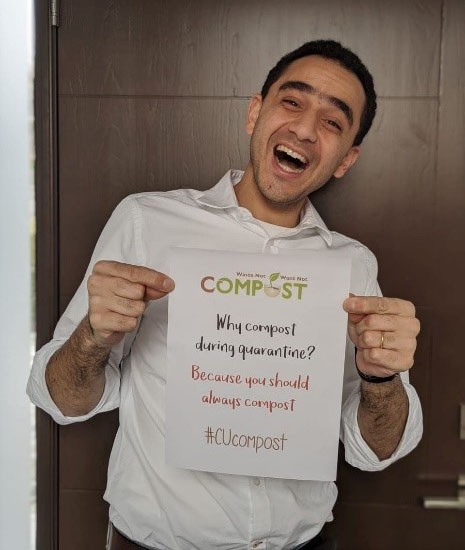 Sherif Goubran (GSA, 2016-17)
Sherif Goubran (GSA, 2016-17)
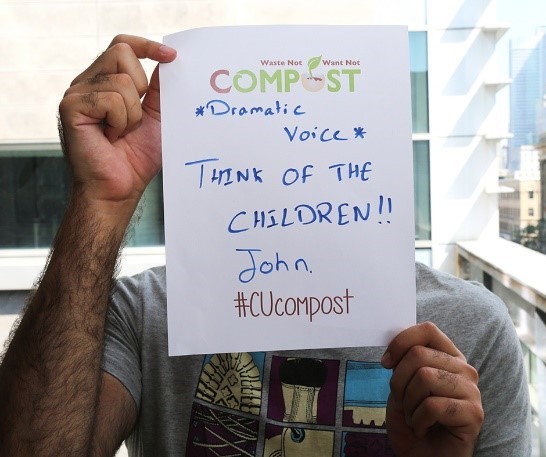 Ribal Abi Raad (GSA, 2015-16). This picture is the best I could do with him.
Ribal Abi Raad (GSA, 2015-16). This picture is the best I could do with him.
Mariya Chugay, former JSEC president, oversaw the first implementation year of CASA’s sustainability policy. “It was hard to even define the scope and definition of sustainability”. It is no surprise given that sustainability spans three broad spheres of environmental, social and economic aspects. Mariya felt that this challenge is made even more difficult by “the lack of sustainability in curriculum in JMSB”. In fact, Mariya surveyed 355 JMSB students and found that 79% would like to see more sustainability content in their curriculum. Nonetheless, “seeing the growth journey in the groups’ learning is [her] favorite part of the policy”. Mariya took the culture change mission to heart and expanded her efforts beyond Concordia. Under her leadership, JSEC co-organized the Montreal youth summit on sustainable business last year, and joined the inaugural year of the Canadian business youth council that was created in collaboration with the 10 most active business student groups in Canada.
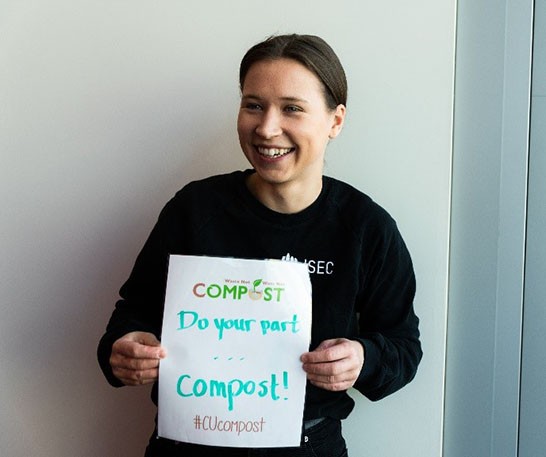 Mariya Chugay (JSEC, 2019-20)
Mariya Chugay (JSEC, 2019-20)
Leaders reinforce commitments.
Lori Dimaria was the former coordinator of clubs and internal affairs at the CSU, and is now a change management specialist at CAE. “In hindsight, knowing what I know now, [changing CCSL composition] was really to reinforce our commitment to sustainability. We started with raising awareness, desire and teaching how to make sustainable choices, once the community was able to put it all in practice we needed to reinforce the change otherwise things fall apart”.
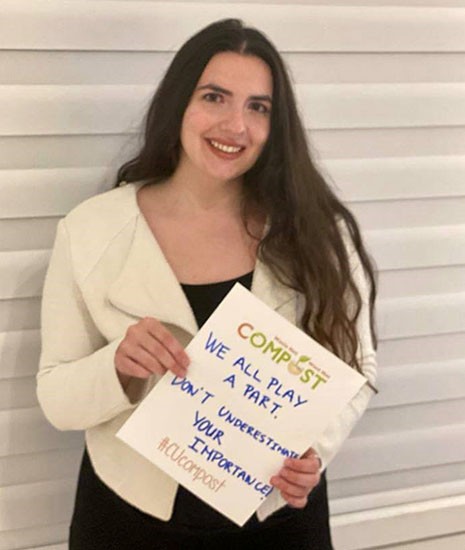 Lori Dimaria (CSU, 2015-16)
Lori Dimaria (CSU, 2015-16)
ECA’s sustainability policy is an example of a policy that reinforces commitments. ECA directly ties a subgroup’s funding to their adherence to the sustainability policy. It turns out that, not aligning with the Waste Not, Want Not initiative in an event with more than 15 attendees is a medium severity offense that merits a 15% cut to a group’s budget.
Andrew said a possible next step for CCSL is to “expand the funding sustainability criteria to the reimbursement stage”. For example, not reimbursing single-use plastic items. “It is not easy because there are many kinds of projects but it is the logical next step”.
Fundmentally, our structures, policies and procedures reflect our values and what we believe to be worth fighting for. Concordia is better today because of those champions. Yet some old challenges still persist, and the pandemic and societal discourse are introducing new ones. Now, it is your turn to make Concordia better than you find it today.
“We are so fascinated with trying to find life on Mars, but there is so much of life and beauty right here. We are a little raindrop, and if we are able to instill a positive change no matter what position we hold, then I think it is important that we do so” -Lori Dimaria.
Helpful links:
Groups mentioned in the article:
- Waste Not, Want Not: Website, Facebook, Twitter.
- Concordia council on student life (CCSL): Website, funding, Concordia’s Co-Curricular Record
- Concordia Student Union (CSU): Website, sustainability policy, funding.
- Graduate Student Association (GSA): Website, sustainability policy, funding.
- Engineering and Computer Science Association (ECA): Website, sustainability policy.
- Commerce and Adminstration Students’ Association (CASA): Website, sustainability policy, John Molson Sustainable Enterprise Committee (JSEC)
- Fine Arts Student Alliance (FASA): Website, sustainability policy, funding.
- Arts and Science Federation of Associations (ASFA): Website, sustainability policy, funding.
Other funding:
Sustainability resources mentioned in the article:
About the author
